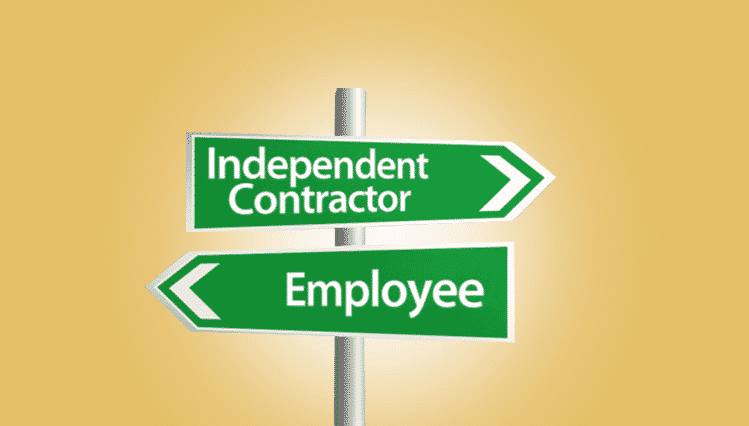In a recent court case, the California Supreme Court implemented a new “ABC Test” to determine if a worker qualifies as an independent contractor. Employers from multiple industries are now arguing that the rigidity of the test’s standards is restricting businesses from engaging with independent contractors.
BUT WHAT IS THE “ABC TEST”?
In the Dynamex Operations West VS Superior Court of Los Angeles County case, the state’s Supreme Court ruled in favor of the plaintiffs, two delivery drivers, who argued that they were misclassified by the hiring entity (Dynamex) as independent contractors and were owed overtime wages. Rather than using the Internal Revenue Services (IRS) 20 factors test (also known in California as the “Borello Test”), the Supreme Court adopted an all-inclusive 3-prong test to determine that the drivers should be classified as employees and should have received overtime pay, expense reimbursements and benefits.
Even if a worker identifies themselves as an independent contractor, or more commonly referred to as a 1099 contractor, the burden of classifying the worker appropriately is on the hiring entity. According to the California Supreme Court’s “ABC Test”, the following factors must be considered before engaging with an independent contractor:
PRONG A: THE WORKER IS FREE FROM THE CONTROL AND THE DIRECTION OF THE HIRING ENTITY IN CONNECTION WITH THE PERFORMANCE OF THE WORK
This factor is tricky to navigate – the business is not allowed to give out instructions on when, where and how the work should be done by the 1099 worker. By instructing or “managing” the worker, the business is at risk of treating the individual as an employee.
PRONG B: THE WORKER PERFORMS WORK THAT IS OUTSIDE THE USUAL COURSE OF THE HIRING ENTITY’S BUSINESS
Many businesses are now arguing that Prong B’s problematic definition is what’s limiting their ability to manage fluctuating workloads by engaging 1099 contractors.
Manufacturing companies routinely engage contract workers (engineers, manufacturing and production workers) to help manage temporary spikes in workloads or tight deadlines – many times contractors and consultants are 1099 employees who perform work that is the “usual course of business”.
PRONG C: THE WORKER IS CUSTOMARILY ENGAGED IN AN INDEPENDENTLY ESTABLISHED TRADE, OCCUPATION, OR BUSINESS
The hiring entity is required to correctly classify the worker. Therefore, it must verify that the 1099 worker is an established business and customarily operates as a service provider to other companies or clients.
With these three factors to consider, what steps must be taken to avoid misclassifying a 1099 worker? Here are some of our suggestions:
- Engage with worker on a “corp-to-corp” basis – In order to work with an independent contractor, the worker must fill up a W-9 form. From there, the worker can indicate if he/she is a sole proprietor, a business corporation or LLC. Ideally, even if the worker uses his/her Social Security Number, engaging with them as a corporate entity fulfills the qualification under Prong C.
- Require Proposal For Work – When utilizing an independent contractor’s services, ask for a quote that outlines the Scope of Work (SOW) to be performed and amount to be paid. Have a pre-agreed upon outcome of the project but do not dictate on how it will be accomplished.
- Require Invoice For Payment – It is important to note that an independent contractor should not be included in your company’s payroll and should not be required to submit a timecard. Instead, the worker should provide the business an invoice for services rendered and be paid as an outside vendor.
- Have Worker Provide His/Her Own Tools and Equipment – Under Prong A, the hiring entity cannot direct what equipment or tools the worker should use to fulfill the job. For example, if your company is looking to contract an outside Mechanical Engineer to do some additional parts design; then that engineer must use his own workstation and CAD software to qualify as an independent contractor.
- Use a staffing agency – Staffing firms are typically well-versed in the latest labor laws and compliance requirements in engaging 1099 contract workers. Since staffing firms routinely engages contract workers, prong B is satisfied and the client company is insulated from any liabilities of misclassifying workers.
Using an agency like SoloPoint is the best course of action when engaging with 1099 independent contractors. This relieves your company of the compliance requirements and also eliminates your employer liabilities.
To learn more about our staffing services, call us today at (408)246-5945 or (714)708-3639.

